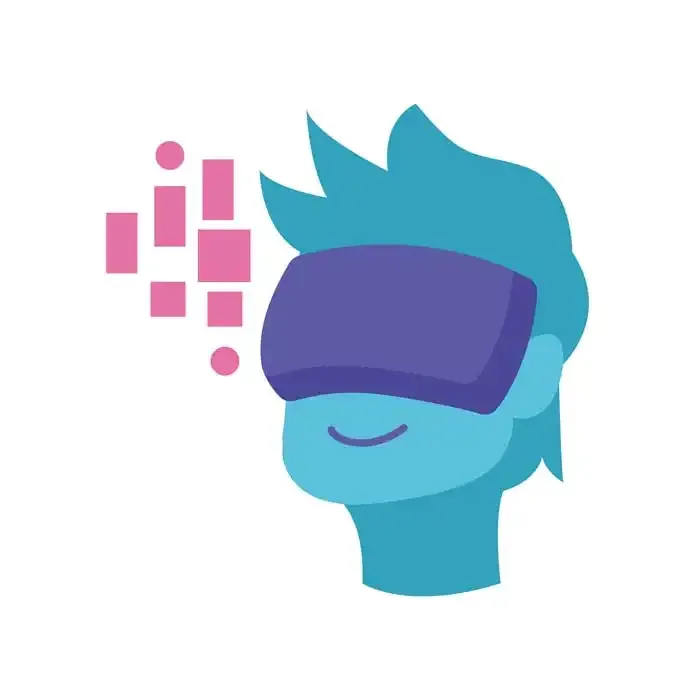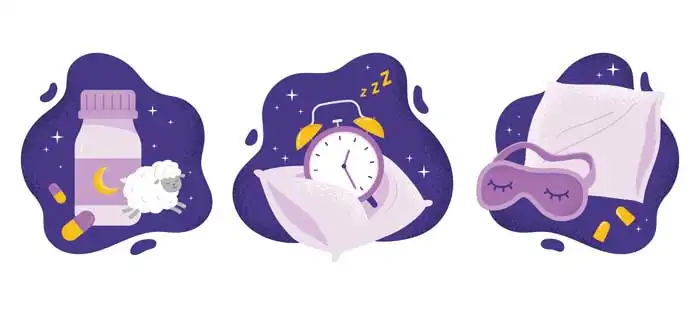2022/11/29
Discussion on Digital Health
Online Roundtable Discussion Among Clinical Doctors 【Part 4】
Clinical Doctor, Disease management and Patient monitoring, Sleep disorder, Wearable, Digital Therapeutics (DTx), Telemedicine
The First Part: Sleep and Sleep Tech

Doctors interested in “Sleep Tech,” which has been the focus of much attention in recent years, were invited to gather to discuss “what Sleep Tech?” “How does it work?” They will also talk about the effects and impressions of using it and ask each other about sleep-related topics that doctors are usually concerned about. The content of this session is a casual read about “Sleep and Sleep Tech.” In this issue, we present the first of three roundtable discussions.
(Although the names of specific products and services appear in the text, these are personal impressions and are not intended to guarantee efficacy or endorse specific products. We have no vested interest in any particular company or organization in connection with this article.)
Participants:

Facilitator: LSMIP Editorial Office
Facilitator: Thank you all for joining us for this roundtable discussion on “sleep and sleep Tech.” We would like to have a gathering of doctors interested in Sleep Tech and would like to talk freely with you about Sleep and the Sleep Tech you use. Thank you very much for your cooperation. First of all, could you briefly introduce yourselves and tell us how you became interested in Sleep Tech?
Dr. Reina: Thank you for your kind attention. I became an insomniac after giving birth and started using Sleep Tech. Recently, I have been struggling a bit with post-COVID-19 sleep disorders. I do general internal medicine at a sanatorium hospital. Thank you.
Dr. Slowly EP: I work as a young emergency physician in an advanced emergency center. I work many night shifts and am trying to be creative with nap timing and supplements to keep my circadian rhythm from going out of whack. Recently, I am enjoying evaluating my life with the (smart ring) “Oura Ring” *1 and am using micro nap with a range of items to take naps at my desk. Please accept my best regards.
Dr. Nemuruko: I am a graduate student in the Department of Respiratory Medicine, researching sleep-disordered breathing. Although I am always aware of the importance of sleep, I sometimes cut down on sleep because of my busy schedule, and I use an app for Apple watch to help me cope with the situation.
One Sleep Tech app that interests me is the “JUKUSUI.” *2 It seems to be able to check snoring with the app, and some patients come to see me after finding their usual sleep problems with this kind of app. One patient was diagnosed adequately with obstructive sleep apnea when a PSG (polysomnography) test was performed, so I think this kind of technology is impressive. Thank you very much for your kind attention.
Dr. Lemon: How do you do? I am Dr. Lemon, a physician and MD specializing in general practice and infectious diseases. I have been a graduate for 15 years. At this time, I do not use the so-called “Sleep Tech.” Still, I use “3D EYE MAGIC” *3 and other products, and I am interested in general recovery items regarding improving sleep quality. And I do a lot of research daily. I feel the importance of “sleep medicine” as sleep is a fundamental part of our daily life. I would like to improve my sleep, especially when I am on duty, as it causes sleep deprivation and disrupts my sleep rhythm. I am also interested in Sleep Tech from a scientific point of view, as several clinical studies have been conducted in recent years on improving sleep quality.
Dr. Nemuruko: I have never used “3D EYE MAGIC” before. I looked it up, and it says it can also play music. Is this like a speaker? Does it sound like headphones?
Dr. Lemon: I am satisfied with the hot eye mask and massage. The music is headphone-like. It has these three functions, each of which can be turned on and off. The time is 15 minutes, which is just suitable for napping.

Recommended Sleep Tech
Dr. Slowly EP: I am currently hooked on the “Oura Ring.” It measures sleep onset latency and depth of sleep and records them along with heart rate and body temperature. I have found that when I eat late at night, such as during my semi-night shift, my heart rate slows down and the quality of my sleep declines. It has affected my lifestyle by changing the time and content of my meals. When I drank deeply, it was even more difficult for my heart rate to slow down. It is interesting to objectively visualize the experience of being tired even while sleeping after a night of excessive alcohol drinking.
Dr. Nemuruko: I use an app called “AutoSleep” *4 on my Apple watch. It measures good sleep time, total sleep time, heart rate transition, deep sleep, sleep bank, etc. After putting this on, I realized that my sleep quality is surprisingly low. I use this app to check my daily sleep time to be aware of getting at least seven hours. I charge my Apple watch before taking a bath to get a good night's data, and I can set the Sleep focus mode so that if I get a text message while I am sleeping, the vibration will not disturb my sleep. I also wake up much better with the vibration, which wakes me up when I'm still asleep.
Dr. Slowly EP: If you sleep with your Apple watch on, don't you miss the recharging time? I used to do the same thing but had charging problems.
Dr. Nemuruko: I charge it after waking up in the morning, working at my desk, and before taking a bath. As you said, there are times when the battery is out of charge, and I am unable to take measurements, so I am concerned about it and charge it frequently.

Dr. Reina: I use “Fitbit Charge5.” The app is the official Fitbit one. It measures pedometer, calorie consumption, sleep time, heart rate, estimated oxygen variation, sleep depth, and sleep score calculated from these data. My husband bought it for me because of my lack of exercise and insomnia after childbirth (I am not very enthusiastic about exercise and find it too much of a hassle). I thought it wouldn't last, but when I saw how low my sleep depth and sleep score were, I wanted to do something to improve my score. I felt like I was getting dumber after childbirth (I hear it's called Mommy Brain) and wanted to do something about it, which was another factor that kept me going. Exercise clearly helped, although it was a personal experience. I also had the impression that I was able to get deep non-REM sleep on days when I took herbal medicine, supplements, etc. This year, after contracting COVID-19, I am again having trouble sleeping for only three hours. My child also had aftereffects, but the pediatrician gave a melatonin-based drug to improve sleep onset, which was remarkably effective. And I also purchased a melatonin supplement, which I am currently trying.
I recommend Fitbit because it is inexpensive among wearable devices, and the charge lasts long. It is less shocking if you lose it or get it dirty.
Dr. Nemuruko: The reason Fitbit is often used for sleep-related research is not only because it is less expensive than other devices.
Dr. Slowly EP: I also used a Fitbit five years ago, but I had the impression that it was already highly accurate. I am also a fan of herbal medicine and melatonin myself. It is impressive to see the effect on the data properly after taking them internally.
Dr. Nemuruko: You all use supplements and medicines to improve sleep. I was surprised!

How Effective is Sleep Tech?
Dr. Lemon: How soon after you start using Sleep Tech do you feel its effects?
Dr. Reina: I use Fitbit as a sleep monitor rather than a benefit. I use the Fitbit app to find what works for me while exercising and using herbal medicine. If the herbal medicine and supplements are effective, my score improves overnight.

Dr. Reina: The left image shows a day when I had an insufficient sleep, and the right image shows a day when I had good sleep.
Dr. Lemon: Indeed, it is a dramatic improvement. It would be good to use both monitoring and improving methods in this way.
Dr. Slowly EP: Even if you stay under the covers for the same length of time, there are days when your sleep efficiency is low, such as when you have a lot of waking time or shallow sleep time.
Dr. Reina: That's right!

Dr. Slowly EP: In both of these images, I thought, “I slept for seven hours!” But this is not the case.
Dr. Lemon: It's time ✖ quality.
Dr. Slowly EP: I enjoy hacking my own body.
Dr. Reina: It is said that using sleep-inducing drugs reduces deep non-REM sleep. I was surprised that this was true for my body when I took them.
Dr. Lemon: Melatonin and herbal medicines do not reduce non-REM sleep?
Dr. Reina: I had no problem. Melatonin significantly increases the duration of sleep itself, so I don't have the impression that non-REM sleep itself is reduced for me personally.

Reason for Using Sleep Tech
Dr. Lemon: I have the impression that Sleep Tech has recently been getting a lot of attention. How long have you been using Sleep Tech? And how did you start using it?
Dr. Nemuruko: I have been using it for about a year and a half. Around the time I entered graduate school, I attended a seminar on entrepreneurship. At that time, I looked into some sleep-related startups, which is how I became interested in industry-academia collaboration in sleep medicine.
Dr. Slowly EP: My first encounter with sleep tracking was the “Fitbit charge2” I bought for fitness management purposes around 2016. After that, I stopped intermittently and tried it on my Apple Watch and iPhone. I stopped wearing a watch for cleanliness due to the COVID-19 pandemic and stayed away from it. But I've recently made a comeback with the Oura Ring.
Dr. Reina: I started using it in 2015 due to postpartum insomnia and lack of exercise. The exercise did not continue, but the sleep management did.
(Continue to the next)
The information contained in this article is compiled by the respective authors based on publicly available information. We assume no responsibility whatsoever for any damage or disadvantage caused by actions taken based on such information. Unauthorized reproduction of articles, photos, charts, etc. is prohibited.
Copyright © 2022 LSMIP office / CM Plus Corporation
A Series of Articles

